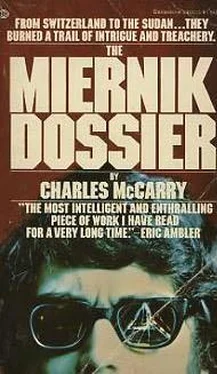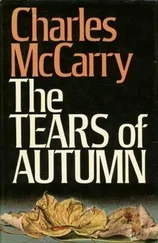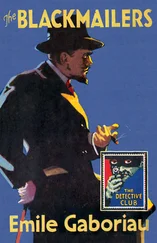It was apparent early in the evening that Miernik had noticed all this. Ilona sat on the floor at Collins’ feet. Miernik sat opposite, saying nothing, his eyes fixed on the girl. He wore a suit, a vest, a tie, polished shoes. Everyone else, just back from the mountains on a Sunday evening, wore sweaters and corduroys.
For his guests Miernik had provided Polish vodka, and nothing else. The vodka, several bottles of it, was chilled in ice buckets. Miernik kept one bucket beside his chair, and he filled the glasses out of the dripping bottle as soon as they were emptied. He insisted that the stuff be drunk Slav style: no sipping, right down the hatch with a cry of good luck.
This sort of drinking did not bring good cheer to our company. Among them, in addition to the melancholy Miernik, we had a concentration camp survivor (Ilona); a man who saw his three young brothers murdered by a Hindu who decapitated the little corpses and hung the heads around his neck on a string (Khan); a victim of mass rape by Russian troops (Brochard’s girl, an Austrian named Inge); and a veteran of the Maquis (Brochard).
Brochard was attempting to lighten the mood by singing bawdy songs. This failed because no one else knew all the French words, and because Collins wanted to hear about Brochard’s experiences as a boy guerrilla.
Brochard’s Maquis group operated, during the war, in the country around Geneva. He comes from a small town in the Jura. He joined the Maquis as a runner when he was only twelve. Apparently the Resistance felt that the Germans were not intelligent enough to suspect children. Brochard found out different when he was thirteen. He was arrested by a German patrol, which seized him as he bicycled from one village to another at two o’clock in the morning. The Germans took him to their headquarters, where he was questioned by a Wehrmacht officer. Brochard managed to get rid of a kitchen knife that he was carrying (against orders) in the waistband of his trousers. He pushed the knife downwards and shook it out the leg of his pants. He cut himself on the thigh in the process.
The German officer stood him in front of his desk and questioned him in a harsh voice. “I think that he must have been a schoolmaster in civilian life,” Brochard said, “because he had the technique perfect. I, of course, was filled with heroism: the Boche would not get any secrets out of me. The only secret I knew, really, was the one I was carrying in my mind. I had been told to tell a certain man in Gex that Marcel wished to sell his cows. The Resistance used these ridiculous formulas for their messages. They were always sending news about cows to people who had no conceivable interest in cows. The Germans could not guess the meaning of the code phrase, of course. But they could shoot anyone who spoke such phrases. The messenger was dead, but the secret was safe. The joke was, the message usually meant no more to the recipient than to the Germans. Our clever agents were always forgetting the code, so they would have to call up the sender on the telephone and ask what he meant by ‘Marcel wants to sell his cows.’ At thirteen, I hadn’t figured this out.
“The German officer wanted an explanation of my riding around on a bicycle at two o’clock in the morning. I knew that I must tell him something. I searched for a cover story. I couldn’t think of anything. My leg was bleeding, I could feel the blood filling my shoe. I thought I might faint. I stood there daydreaming about a daring rescue: I pictured my gallant comrades of the Maquis bursting through the windows with machine pistols blazing. I saw myself picking up the weapon of a fallen rescuer and riddling the German.
“The German said, ‘I am going to call your parents in here to find out why they permit a child to roam about on a bicycle in the middle of the night.’ He was outraged that I wasn’t asleep as I should be. He thought I was a bad boy. It was humiliating that he should think only that, when I was a hero of the Resistance. I thought of a story that I believed would keep my parents out of it.
“‘Herr Hauptmann,’ I said, ‘I’ll tell you what I was doing if you agree not to tell my mother and father. I was making love to a girl in the woods.’
“‘Making love to a girl!’ bellowed the German, and stood up so suddenly that his chair went squealing over the floor. He was outraged. He strode around the desk. I think that he was going to strike me. Then he saw, on the floor at my feet, a puddle of blood from the cut that the knife had made.
‘“What the hell is that?’he cried. ‘Take off your pants.’
“I tried to avoid this. I refused. He sent for two soldiers. They leaned their rifles against the wall and pulled off my trousers.
“It was a very German scene: ‘Take off that boy’s trousers!’ - ‘Jawohl!’No questions, no hesitation, no smiles, a serious order to be obeyed.
“Blood was running down my leg. The soldiers were careful not to get it on their uniforms. The officer brought the lamp from his desk and tipped it so that the light fell on my wound. It was a small cut. ‘How did you come by that?’ he demanded. He shone the light on my genitals. ‘You have no hair!’ he cried. He grinned in triumph; I was outwitted. Obviously hairless boys cannot make love in the woods. Then he stopped and stared at my hairless parts again. His expression became grim. He told the soldiers to go out of the room.
“‘Léon,’ he said. ‘You are clipped.’
“He had seen that I was circumcised. Everything was pushed out of my mind by a sudden shame. I knew that I could not be a hero in the German’s eyes now. He knew I was a Jew. He knew that my parents were Jews. I might say that he knew more than the French people in our village knew, because my father had stopped mentioning his religion years before. France is not a Jewloving country.
“I knew we were all as good as dead. We’d be on the next train for Auschwitz. The German poured some alcohol on his handkerchief and gave it to me. ‘Wash that cut, he said. I did so. He left me standing in front of his desk for several minutes. I remained as I was, naked from the waist downwards. He stared at his hands.
“Finally the German looked at me. ‘Put on your pants, he said. He wrote me out a pass. ‘I advise you,’ the German said, ‘to keep your pants on in the presence of the German Army. Get out of here.”’
Inge, the Austrian girl, lifted misty eyes to Brochard. “Not all Germans were beasts,” she said.
Miernik gave a great snort, like a horse smelling a corpse. “That is a lot of shit,” he said in German. “Ilona, isn’t that a lot of shit?”
I had never heard Miernik use such a word, I would have been less surprised if he had pulled a gun.
“Which?” asked Ilona. “Léon’s story or Inge’s proposition?”
“Inge’s shit about the Germans.”
“I don’t know.”
“You’ve had no chance to observe the Germans?”
“I don’t suppose that I met the flower of Germany at Belsen.”
Ilona, herself a flower at Collins’ feet with her white skirt spread around her, reached over and touched Miernik’s heavy leg. He was quivering. The black cloth of his suit trembled.
“I’ve practically forgotten the camp; I was very young, Ilona said. It was hard to think that Ilona-she could hardly have been less beautiful, less fragile at the age of eight-had stood behind the wire in a sack dress, her hair shaved off, guard dogs sniffing her sour prisoner’s odor. She smiled apologetically, as if she really regretted that she could tell no horror stories.
Inge stared at Miernik, her face ready to break like a child’s. “I remind you that I am Austrian,” she said.
“I remind you, my dear Inge, that Austria was part of the German Reich when your lover was having his pants pulled off by German soldiers, while Ilona was in a concentration camp, while my country was being raped by the SS.”
Читать дальше












